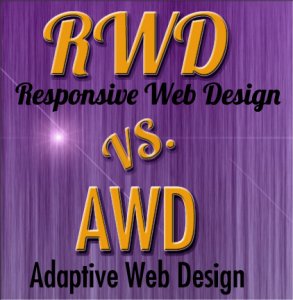Responsive is one site for all devices -
@craigh I'm confused by what you're saying.
Correct. That's exactly my issue with it. That means that every page on the website has to be designed to work on my retina iMac (that's a 5k screen) and my Blackberry Bold (that's a 4:3 tiny screen). Responsive dictates that I must use the same website, stylesheets, etc on both of those devices, even though they're entirely different mediums that are used in entirely different ways.
So I would tell people that I believe in adaptive design. But this started losing me sales. Why? Because other companies would tell clients, "If they do adaptive design it means it won't look good on every device because they have to re-design a copy of the site for every single device size". Because of this nonsense, I now have to call it a combination.
The desktop site is the desktop site - it's made to work on all computers with a touchscreen or keyboard and mouse - it has many features and functions that work great on a desktop.
The mobile site is responsive. That means that whether you have a blackberry or an iPhone 6 Plus, you're getting a version of my mobile site tailored to your screen. This means that I can now tailor my mobile website to the fact that you're navigating with your thumbs on a small screen 2 feet away from your face.
This is a very different experience and while you can account for much of this with a responsive website, it means that every page that you add to the website, every video, every photo, etc has to be tagged responsively to ensure that it can shrink and grow with the rest of the site.
I don't know if that makes any more sense - I'm rambling a bit.
TL;DR
I believe in adaptive, but when you tell me I'm crazy I'll explain that my mobile and tablet sites are responsive, just not my desktop site.













